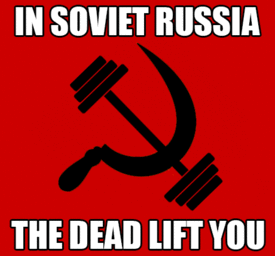Tempo runs - why and how?

BerryH
Posts: 4,698 Member
OK I have to confess I've been avoiding tempo runs like the plague as to me they're just sustained discomfort. But they're an integral part of my half marathon training plan, and I'm fed of being the slowest runner in the field and want to get home by lunchtime! So can you please remind me why they're worth is, if they've improved your times at all and most importantly how to know I've got the pace right without collapsing into a small, sweaty heap.
0
Replies
-
Yes, Tempo runs are important to increasing speed, how do you expect to get faster if you don't train your body to run faster? Speed work with intervals can help too. Here's the sciencey answer from runnersworld.com
Tempo running improves a crucial physiological variable for running success: our metabolic fitness. How? By increasing your lactate threshold, or the point at which the body fatigues at a certain pace. During tempo runs, lactate and hydrogen ions–by-products of metabolism–are released into the muscles.
The ions make the muscles acidic, eventually leading to fatigue. The better trained you become, the higher you push your "threshold," meaning your muscles become better at using these byproducts. The result is less-acidic muscles (that is, muscles that haven't reached their new "threshold"), so they keep on contracting, letting you run farther and faster.0 -
The tempo runs and intervals in my half trainig plan helped me take 10min off of my 10mi time.
Before my injury, in 2012 I was doing then for another half and ended up with a 24:58 5k when 6mo previous i was 28:040 -
Wow, science and evidence, I'm convinced! I may even feel hardcore enough to go running in the rain at lunchtime. Thanks!0
-
Does your training plan not include instructions on how to calculate your tempo pace based off of your desired half marathon finishing time? (and, consequently, your paces for your other runs?) This is important, because different training plans mean different things by "tempo run." Like, some mean warm up, intense pace for X miles, cool down; others have you go slow, 2 mile burst, recovery, 2 mile burst, slow; and so forth.
Some options would be: your desired HM race pace, the marathon equivalent of your desire race pace (the McMillan calculators are good for finding the equivalent for different distances), 30-45 seconds slower than your 5K pace.
I like tempo runs--it's fun to go faster and get to show off your speed. 0
0 -
Can I chuck hill repeats into the mix here too?0
-
Good point CC, I transferred my training plan to a spreadsheet to stick on the fridge door and didn't think to refer to it. Here it is:
"The Tempo Run (TR) is your faster run each week. Run it at a pace which is faster than you could sustain for a half marathon. If you’ve done a 10k, think 85% - 90% of your 10k pace. Use the first few minutes to build up to your target pace.
The tempo run is not meant to be comfortable - the ‘talk test’ is a useful way to see if you are working hard enough: You should be able to speak a few words, but not hold a conversation. Aim to maintain the same pace for the entire run - it may take a few sessions before you’re able to adjust your pace and hit the right speed."
Today's session is: 5 mins brisk walk, TR - 20 mins, 5 mins brisk walk
It's very much a beginner's training plan, and although I've run several 10Ks, I've never "raced" them - I generally do them at my LSR pace to get round, but I obviously need to find some faster gears!0 -
0
-
Do it, you'll love it!0
-
Good point CC, I transferred my training plan to a spreadsheet to stick on the fridge door and didn't think to refer to it. Here it is:
"The Tempo Run (TR) is your faster run each week. Run it at a pace which is faster than you could sustain for a half marathon. If you’ve done a 10k, think 85% - 90% of your 10k pace. Use the first few minutes to build up to your target pace.
The tempo run is not meant to be comfortable - the ‘talk test’ is a useful way to see if you are working hard enough: You should be able to speak a few words, but not hold a conversation. Aim to maintain the same pace for the entire run - it may take a few sessions before you’re able to adjust your pace and hit the right speed."
Today's session is: 5 mins brisk walk, TR - 20 mins, 5 mins brisk walk
It's very much a beginner's training plan, and although I've run several 10Ks, I've never "raced" them - I generally do them at my LSR pace to get round, but I obviously need to find some faster gears!
A reliable guide, for me, is that my race pace (HM, marathon, whatever) settles into about 45 seconds faster than my LSR. Someday I'll learn to race the shorter (10K, HM) hard, but for now, that's what I aim for/what feels "right." You could try that. Just aiming for your desired HM pace could also work--I like practicing race pace; it gives me confidence and helps me hold that pace during the race itself, because my legs are "used" to it.0 -
I credit tempo runs with really helping me to carry my speed over a distance. I have the speed, i just needed the stamina.0
-
I was unsure about shorter speedwork sessions too at first. After giving them a try though I would never go back to skipping them again. They make a big difference. Another thing you might want to check out is strength training for your cross training days. That is another thing I ignored. Big mistake. Once you build up cardio capacity and endurance to run long distances you might find that certain areas of your body don't have the strength to maintain proper running form for the long distances and you can start feeling some pain and runners injuries from there. That sucks because right now I am trying to build distance for some runs I have planned...but to really be successful at them I must first build strength, and doing the workouts for that strength saps some of my running endurance. So just do it now while you are still building up.0
-
Yes, Tempo runs are important to increasing speed, how do you expect to get faster if you don't train your body to run faster? Speed work with intervals can help too. Here's the sciencey answer from runnersworld.com
Tempo running improves a crucial physiological variable for running success: our metabolic fitness. How? By increasing your lactate threshold, or the point at which the body fatigues at a certain pace. During tempo runs, lactate and hydrogen ions–by-products of metabolism–are released into the muscles.
The ions make the muscles acidic, eventually leading to fatigue. The better trained you become, the higher you push your "threshold," meaning your muscles become better at using these byproducts. The result is less-acidic muscles (that is, muscles that haven't reached their new "threshold"), so they keep on contracting, letting you run farther and faster.
You obviously have no clue what a tempo run is (aerobic threshold), or lactic threshold, etc. Your last paragraph is kinda right though.
Running faster doesn't make you faster. Running is not like weight lifting.
OP: Simply put, running easy miles makes your heart able to sustain higher aerobic capacity, and speedwork will help your legs gain muscular endurance. Yes, you need both, but for marathon/half marathon training, speedwork isn't as important as getting the aerobic base up to snuff via easy mileage. You'll get more for your money with the easy stuff.
Also, if you're on a beginner training plan that involves walking, speedwork isn't going to give you a damn thing, hence why the "run faster to get faster" advice is especially dumb.
0 -
The half training plan I did last winter incorporated speed work and tempo runs. I improved my half time by over 20 minutes. Clearly it works. I wasn't the slowest one in the field anymore LOL. This winter, I didn't follow a training plan and haven't done speed work (though did do some tempo runs). I don't anticipate my half on Sunday to be a fast one, but that'll also be attributable to the field I'm running in. It will be very, very crowded.
0 -
No, it's all running, they just spell out walking warm-ups.SonicDeathMonkey80 wrote: »Also, if you're on a beginner training plan that involves walking, speedwork isn't going to give you a damn thing, hence why the "run faster to get faster" advice is especially dumb.
0 -
Now that's news I can use, thanks!grimmeanor wrote: »I was unsure about shorter speedwork sessions too at first. After giving them a try though I would never go back to skipping them again. They make a big difference. Another thing you might want to check out is strength training for your cross training days. That is another thing I ignored. Big mistake. Once you build up cardio capacity and endurance to run long distances you might find that certain areas of your body don't have the strength to maintain proper running form for the long distances and you can start feeling some pain and runners injuries from there. That sucks because right now I am trying to build distance for some runs I have planned...but to really be successful at them I must first build strength, and doing the workouts for that strength saps some of my running endurance. So just do it now while you are still building up.
0 -
I both agree and disagree with Doug. Doing the majority of miles at base speed will definitely be more beneficial. Aerobic capacity and aerobic durability NEED to be built for speed and tempo work to be especially beneficial. Slower speeds, more mitochondria, better ability to process oxygen and nutrients, better times.
That said it is the same with weight lifting. You need to have a base level of strength prior to moving on to more advanced routines like 5/3/1, GVT, or Sheiko.
0 -
BUMP for later0
-
SonicDeathMonkey80 wrote: »Yes, Tempo runs are important to increasing speed, how do you expect to get faster if you don't train your body to run faster? Speed work with intervals can help too. Here's the sciencey answer from runnersworld.com
Tempo running improves a crucial physiological variable for running success: our metabolic fitness. How? By increasing your lactate threshold, or the point at which the body fatigues at a certain pace. During tempo runs, lactate and hydrogen ions–by-products of metabolism–are released into the muscles.
The ions make the muscles acidic, eventually leading to fatigue. The better trained you become, the higher you push your "threshold," meaning your muscles become better at using these byproducts. The result is less-acidic muscles (that is, muscles that haven't reached their new "threshold"), so they keep on contracting, letting you run farther and faster.
You obviously have no clue what a tempo run is (aerobic threshold), or lactic threshold, etc. Your last paragraph is kinda right though.
Running faster doesn't make you faster. Running is not like weight lifting.
OP: Simply put, running easy miles makes your heart able to sustain higher aerobic capacity, and speedwork will help your legs gain muscular endurance. Yes, you need both, but for marathon/half marathon training, speedwork isn't as important as getting the aerobic base up to snuff via easy mileage. You'll get more for your money with the easy stuff.
Also, if you're on a beginner training plan that involves walking, speedwork isn't going to give you a damn thing, hence why the "run faster to get faster" advice is especially dumb.
Yes... all of this. I am confused why the plan has a "tempo run" that includes walking. If you need to walk at all during a run of any length, you probably are not at the point where you need to worry about tempo runs. Tempo, and speed intervals are the icing on the cake. Endurance miles are the base. Without the base you won't have a cake to put the icing on.0 -
Berry, I think strength training is one of the reasons I've been able to increase my speed this past year. I hadn't done much tempo work before this last year, either. This last HM training period I started throwing in a "fast 5K" here and there and I think the combination really helped me shave that one minute per mile off my HM time.
Now that's news I can use, thanks!grimmeanor wrote: »I was unsure about shorter speedwork sessions too at first. After giving them a try though I would never go back to skipping them again. They make a big difference. Another thing you might want to check out is strength training for your cross training days. That is another thing I ignored. Big mistake. Once you build up cardio capacity and endurance to run long distances you might find that certain areas of your body don't have the strength to maintain proper running form for the long distances and you can start feeling some pain and runners injuries from there. That sucks because right now I am trying to build distance for some runs I have planned...but to really be successful at them I must first build strength, and doing the workouts for that strength saps some of my running endurance. So just do it now while you are still building up.
0 -
I just re-read the OP's plan. And I am even more confused. 5 minutes walk warmup? Useless. 20 minutes "tempo"? Not sure of the point. 5 minutes walking cooldown? Might as well not bother.
You are better served by running 30 minutes at endurance pace if that is the specified workout duration.0 -
No, those warm ups and cool downs are specified in the training programme and the run duration is separate, exactly as I posted.I just re-read the OP's plan. And I am even more confused. 5 minutes walk warmup? Useless. 20 minutes "tempo"? Not sure of the point. 5 minutes walking cooldown? Might as well not bother.
You are better served by running 30 minutes at endurance pace if that is the specified workout duration.
It doesn't stay that way throughout, it builds really slowly. It works for me!
Half marathon training plan.
0 -
I just re-read the OP's plan. And I am even more confused. 5 minutes walk warmup? Useless. 20 minutes "tempo"? Not sure of the point. 5 minutes walking cooldown? Might as well not bother.
You are better served by running 30 minutes at endurance pace if that is the specified workout duration.
I was thinking the same... 5 minutes of walking as a warm-up isn't enough for a tempo run... I usually run 2-3 miles at an easy pace before being able to hit my tempo pace. Going straight from walking to tempo pace = bad idea!
0 -
No, it's all running, they just spell out walking warm-ups.SonicDeathMonkey80 wrote: »Also, if you're on a beginner training plan that involves walking, speedwork isn't going to give you a damn thing, hence why the "run faster to get faster" advice is especially dumb.
For a tempo run session I'd expect the warm up to be 15 minutes easy paced running, so 1.5 miles, similar cooldown. If you've got a walking warm up then I'd question whether your run pace is really in the tempo range. Similar to T2BF, I couldn't go straight into my tempo pace from a walk, I'd burn out in about 15 minutesif I tried that.
That said, tempos have a place, I'm less hard over on the position that they don't give benefit if you're not getting the easy miles in. They put you under pressure to perform at a higher pace, some physiological benefit, some psychological.
What are your various paces at the moment and how have you determined them?
0 -
MeanderingMammal wrote: »
I just have "plodding fat old runner" pace which is between 11:30 and 13 minute miles (don't laugh!) depending on how long it is and how I'm feeling, measured on Strava. I have done, like, one mile ever sub-10. Which is why I know I need some speed work
What are your various paces at the moment and how have you determined them?
My last 10K was 1 hour 16, but that was hilly and partially cross-country.
0 -
Tempo runs have been my "go to" workouts for 40 years. IMO, for many people they are much more effective than HIIT for both conditioning and weight loss.0
-
MeanderingMammal wrote: »
No, it's all running, they just spell out walking warm-ups.SonicDeathMonkey80 wrote: »Also, if you're on a beginner training plan that involves walking, speedwork isn't going to give you a damn thing, hence why the "run faster to get faster" advice is especially dumb.
For a tempo run session I'd expect the warm up to be 15 minutes easy paced running, so 1.5 miles, similar cooldown. If you've got a walking warm up then I'd question whether your run pace is really in the tempo range. Similar to T2BF, I couldn't go straight into my tempo pace from a walk, I'd burn out in about 15 minutesif I tried that.
That said, tempos have a place, I'm less hard over on the position that they don't give benefit if you're not getting the easy miles in. They put you under pressure to perform at a higher pace, some physiological benefit, some psychological.
What are your various paces at the moment and how have you determined them?
Fill out the form and then select "Training Paces"
https://www.mcmillanrunning.com/0 -
No, those warm ups and cool downs are specified in the training programme and the run duration is separate, exactly as I posted.I just re-read the OP's plan. And I am even more confused. 5 minutes walk warmup? Useless. 20 minutes "tempo"? Not sure of the point. 5 minutes walking cooldown? Might as well not bother.
You are better served by running 30 minutes at endurance pace if that is the specified workout duration.
It doesn't stay that way throughout, it builds really slowly. It works for me!
Half marathon training plan.
Looks like a reasonable plan for a beginner but I have to laugh that they think an "elite" is going to run 80 minutes with a plan like this. 1) "elites" run way faster than 80 minutes. More like 65-75. 2) They didn't get to be elites with a 3-run-per-week plan.
0 -
-
Roads like that make me *happy*0
-
My last 10K was 1 hour 16, but that was hilly and partially cross-country.
I just ran that through Mcmillan, and given the paces it suggested you'll probably get a lot more just from steady paced distances rather than tempos, as suggested by others upthread.
I had a glance at your bio and while I appreciate that you've done marathon distance in the past it would seem like your sessions are too short, if that tempo run is typical.
For my last HM plan I had nothing less than 45 minutes with most of my sessions being 60-90, and tempos being in the 60 minute range; 15 minutes warm up and cool down with thirty minutes at tempo pace.
How far into the plan are you?0
This discussion has been closed.
Categories
- All Categories
- 1.4M Health, Wellness and Goals
- 398.2K Introduce Yourself
- 44.7K Getting Started
- 261K Health and Weight Loss
- 176.4K Food and Nutrition
- 47.7K Recipes
- 233K Fitness and Exercise
- 462 Sleep, Mindfulness and Overall Wellness
- 6.5K Goal: Maintaining Weight
- 8.7K Goal: Gaining Weight and Body Building
- 153.5K Motivation and Support
- 8.4K Challenges
- 1.4K Debate Club
- 96.5K Chit-Chat
- 2.6K Fun and Games
- 4.8K MyFitnessPal Information
- 12 News and Announcements
- 21 MyFitnessPal Academy
- 1.6K Feature Suggestions and Ideas
- 3.2K MyFitnessPal Tech Support Questions

















